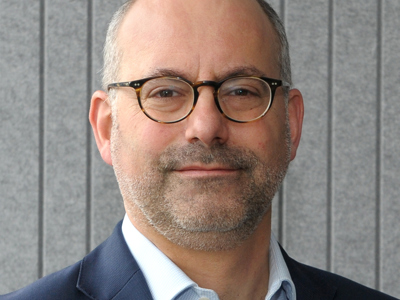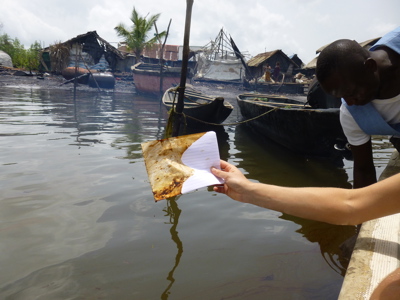
Court of Appeal ruling clears the way for full trial of Nigerian communities’ oil pollution claims against Shell to finally go ahead in 2025
The Court of Appeal has granted an appeal of major significance in the legal claim of two Nigerian communities whose environments have been devastated by oil pollution, allegedly caused by Shell plc’s Nigerian subsidiary SPDC.
Posted on 06 December 2024
The judgment handed down on Friday 6 December 2024, rejects Shell’s attempts to stall the claims of the Ogale and Billie communities since the Supreme Court ruled in 2021 that they should be heard at the High Court in London. The claims have been ongoing for almost a decade.
The Court of Appeal judgment overturns a High Court ruling in March 2024, which would have made it practically impossible for anyone to bring environmental claims involving multiple incidents of pollution. Today’s judgment is therefore of major significance for all such future environmental claims.
The Court dismissed the High Court’s ruling that found that, because the claimants have been unable to link particular areas of damage to over 100 individual oil spills, the claims should be treated as a “Global Claim” - a type of legal action only ever used in contractual disputes in the construction industry.
Under a Global Claim, the Bille and Ogale communities would have had to prove that Shell was responsible for 100% of the pollution that has impacted their environment. If there were any other sources of pollution for which Shell was not responsible, the claim would fail entirely.
Leigh Day successfully argued that this imposed an impossibly high burden on claimants. The judges agreed, describing the “Global Claims” trial, which had previously been ordered by the High Court, as “a recipe for an extremely expensive and insufficiently focused disaster.” The Court of Appeal instead said that the 2025 trial should focus on lead cases, which are representative of the problems faced by the thousands of clients.
The court also recognised that Shell, one of the world’s largest oil companies, has far more resources than the Nigerian communities bringing the claim, and access to key documents which the claimants do not have, and ruled that:
There is significant “inequality of arms” (or resources) in access to information between Shell and the Communities seeking redress
In cases “where there is a significant inequality of arms and asymmetry of information” it is “the Court’s obligation to ensure that the parties are on an equal footing” and “the process of disclosure is one of the most powerful tools available for achieving justice”.
Because of the time taken up with Shell’s various legal challenges which have lasted almost a decade there was a need to move the litigation on promptly and “urgent progress now needs to be made”.
Shell will now be required to share key documents about the oil pollution with the communities and their legal team at Leigh Day, which have not previously been made public.
Since the Claims were issued in 2015 Shell has vigorously defended the villagers’ claims on various grounds which have all been dismissed by the appellate courts.
Bille and Ogale residents claim their livelihoods have been destroyed and homes damaged by hundreds of spills which have happened since the late 1980s, causing widespread devastation to the local environment, killing fish and plant life, and leaving thousands without access to clean drinking water.
Shell has served its legal Defence against the villagers’ claims, arguing that it has no legal responsibility for any of the pollution and they deny they are under a legal duty to the communities to clean up any pollution they have caused.
Chief Bennett Okpoki, of Bille said:
“The Bille people are happy with the judgment. This has taken a very long time as Shell has been delaying for around ten years. Shell has made several applications to strike out the claims. Now, we have a judgment in our favour. The spills have terribly affected the Bille community. Our ecosystems are dead. Our livelihood depends on fishing. After the oil spills, we have found it very difficult to survive and people are not finding it easy. We hope it continues, so we can have a final victory over Shell, at least for them to come and do the clean-up, to put us in the place we were before.”
King Bebe Okpabi, of Ogale, said:
“As the King, and on behalf of the entire people of Ogale, I can say we are very happy that at least for now, all the gimmicks and the shenanigans and tactics of Shell to delay this case, to evade responsibility on all the damage we believe they have caused to us have been dismissed by the judges. I am very happy that the Court of Appeal has finally seen through those gimmicks and has given this ruling which will compel Shell to disclose information, so that this trial can move forward. We are very happy with the Court of Appeal and judicial system of the United Kingdom.”
Leigh Day international department partner Dan Leader said:
“It has been ten years since these two Nigerian communities first brought their claims in the UK courts and many of our clients have died while awaiting justice.
“Our clients have already had to fight all the way to the Supreme Court to get a ruling that the UK Parent company, Shell plc is potentially liable for the environmental devastation they have suffered. Shell has been repeatedly tying the case up in knots and it has barely moved forward since the communities’ Supreme Court victory in 2021. The Court of Appeal has now cut through the issues and made it clear that the claims must now urgently proceed to trial.
“This is a critical judgment for environmental claims going forward. Now the “Global Claims” test has been dismissed, claimants will be able to bring complex environmental claims arising from multiple and repeated polluting events without being asked to prove the impossible.”
Leigh Day international department partner Matthew Renshaw said:
“The Court of Appeal judgment has now put these claims firmly back on track. Shell wanted the Court to look into pollution for which they weren’t responsible but now the focus will rightly turn to Shell’s alleged responsibility for the pollution in Ogale and Bille. After years of Shell battling to prevent this case getting to trial, the Court of Appeal has stated that a trial of lead cases should now happen as soon as possible. Our clients will soon get to tell their stories in the High Court and Shell plc’s involvement in causing the damage will be scrutinised.
“The judgment also makes it clear that well-resourced, powerful defendants like Shell plc should not be allowed to withhold documents and information to prevent individuals who may have been harmed by their operations from pursuing justice.”

Daniel Leader
International human rights, business human rights and corporate accountability lawyer

Court of Appeal hears Shell Nigeria oil spill appeal which will have major implications for future environmental claims
The Court of Appeal is hearing the case of two rural Nigerian communities who allege the oil giant Shell caused devastating pollution to their land. The case will have major implications for the viability of similar environmental claims in future.


